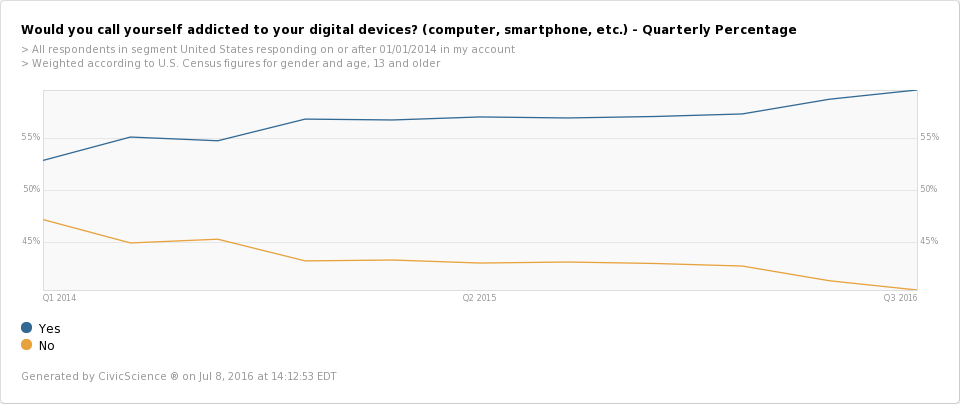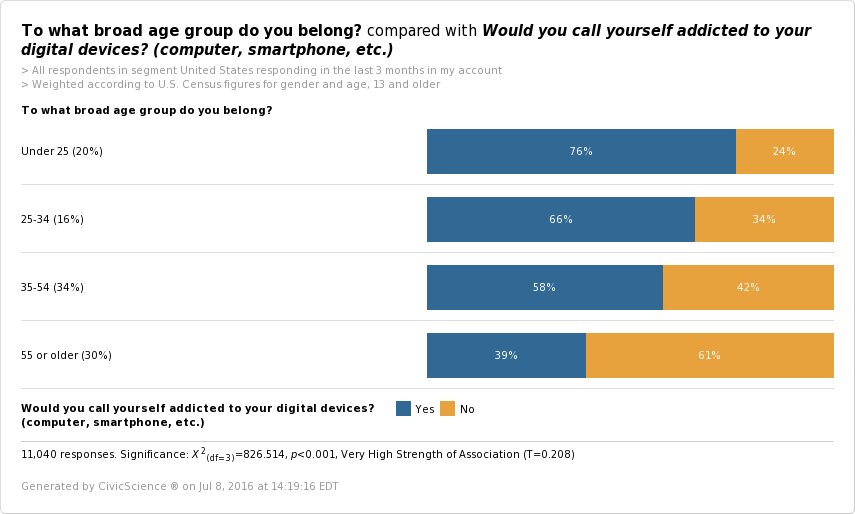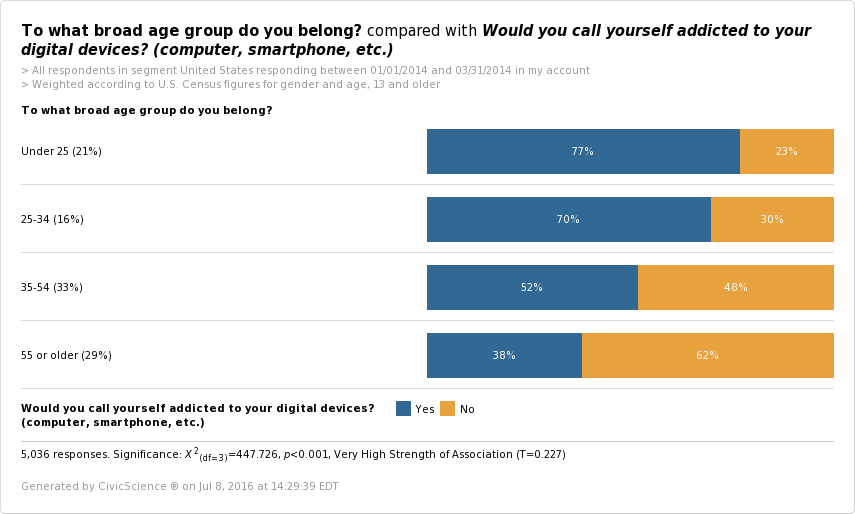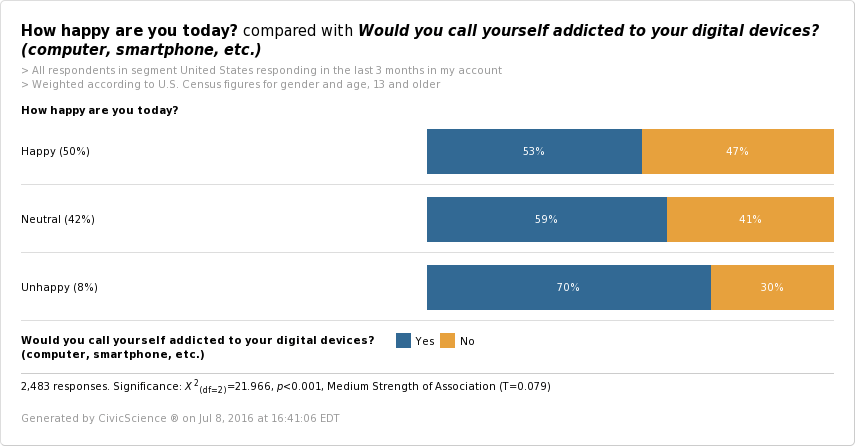John Dick reports in Civic Science:
By the end of 2013, the number of Americans who self-identified as addicts was 49%, meaning the current 59% represents a 20% increase in the past 30 months. If that torrid pace continues, we could see addiction rates as high as 70% by the end of 2018.
There are a lot of things I’d like to improve about myself. I eat too much salt. I exercise too little. I don’t call my mom often enough. But, at the very top of the list is my obsession with my smartphone and all of its trappings. It’s terrible.
I steal glances at my phone while I’m driving. I make faux trips to the restroom just to check messages and notifications, away from the judging glare of dinner companions. The fact that I haven’t yet dropped my phone in a public toilet is a miracle. And, worse than all of that, I’m horrified of the example I set for my kids. Are they going to look back on their childhood and just remember me staring blankly into my hand? My stomach is turning just writing this.
I’m a device addict. And I’m not alone. Based on the most recent CivicScience data, 59% of online U.S. consumers aged 13 and older consider themselves at least “somewhat” addicted to their digital device. 59%! And that doesn’t even include the people who are in denial. While, like any addiction, there are wide ranges of severity, the fact that over half of Americans identify themselves as addicts easily qualifies as an epidemic.
I’ll admit that using words like “addict” and “epidemic” to describe phone usage feels pejorative, when compared to deadly addictions like drugs or alcohol. But, given the relative infancy of smart devices, we might be decades from understanding their full and lasting impact on our physical, psychological, and emotional health. This is no joke.
The proliferation of device addiction is alarming as well. By the end of 2013, the number of Americans who self-identified as addicts was 49%, meaning the current 59% represents a 20% increase in the past 30 months. If that torrid pace continues, we could see addiction rates as high as 70% by the end of 2018.
It may come as no surprise that device addiction is most common among younger people. 76% of people under the age of 25 consider themselves addicted, a rate almost 2X that of consumers age 55 or older. Addiction rates are also higher among women, Hispanic-Americans, and people who live in urban areas.
But it may be surprising to see where the majority of growth is coming from. Compare the chart above to the one below, which captured respondents during the first quarter of 2014.
Reported rates of addiction increased the most among respondents aged 35-54 and slightly among those 55+. Among people 34 and younger, the numbers actually decreased. Addiction rates are also growing faster among men, parents, suburbanites, and the wealthy.
Our data reveal a lot of other things about device addicts, like me. We’re more likely to describe ourselves as “Night Owls” and more likely to have trouble falling asleep most nights (check), more likely to overeat (check), more likely to own but not use exercise equipment (check), more often to drink wine “twice a week or more,” (double check), more likely to smoke cigarettes “some days” but not “every day” (only when I drink too much wine) and more likely to have difficulty controlling our spending (especially on wine).
All of this paints a pretty clear picture of a stressed out, fitness-lacking, overall addictive personality type. Without a doubt, our devices are not only correlated with these unhealthy activities, they’re probably making them worse. Perhaps most importantly, we find a direct correlation between being addicted to a device and being unhappy. See for yourself:
I can’t say I’m in the “Unhappy” crowd. I’m one of the happiest people I know, in fact. But I also wonder how much happier I would be if I turned off my phone a little more often.
I guess I’ll keep working at it.

























0 comments:
Post a Comment